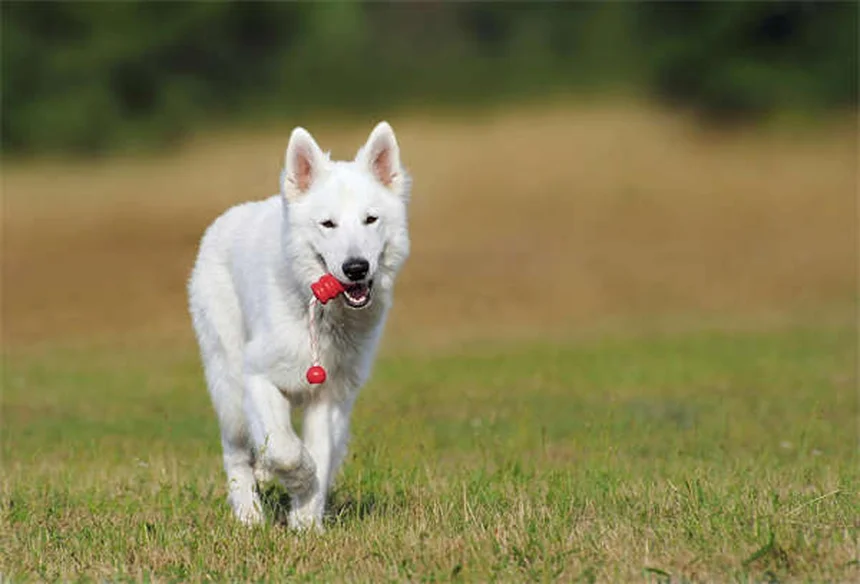Why do cats bite? The answer is simple: it's completely natural behavior! As cat expert Samantha Bell explains, Cats aren't being bad when they bite - it's just instinct. I've learned through years of cat ownership that biting is how our feline friends communicate everything from affection to discomfort.In this guide, we'll explore the 5 main reasons cats bite and give you practical solutions to redirect this behavior. Whether it's love bites during cuddles or fear-based nips, understanding your cat's body language is key to building a better relationship. Trust me, once you learn to speak cat, those surprise bites will become much less frequent!
E.g. :Why Is My Dog Always Hungry? 7 Possible Causes & When to Worry
- 1、Understanding Why Cats Bite
- 2、Reading Your Cat's Body Language
- 3、Practical Solutions to Reduce Biting
- 4、Special Situations
- 5、What If You Get Bitten?
- 6、The Science Behind Cat Bites
- 7、Creating a Bite-Free Environment
- 8、Understanding Different Cat Personalities
- 9、When to Seek Professional Help
- 10、Fun Alternatives to Physical Play
- 11、FAQs
Understanding Why Cats Bite
It's Not Personal - It's Instinct!
Hey there fellow cat lover! Let me tell you something important - when your furry friend nips at you, they're not trying to be naughty. My friend Samantha Bell, a cat expert, explains this perfectly: "Cats don't bite to be bad - it's just their natural instinct kicking in."
Now, I know what you're thinking - "But why does my sweet kitty suddenly turn into a tiny tiger?" Great question! Cats use their mouths like we use words - to communicate all sorts of things. They might be saying "I love you," "That's enough petting," or even "Ouch, that hurts!"
The Many Meanings Behind Cat Bites
Let's break down the different types of bites you might experience:
| Bite Type | What It Means | What You Should Do |
|---|---|---|
| Love Bites | Gentle nibbles during cuddles | Give your cat space - they're overstimulated |
| Play Bites | Nips during playtime | Redirect to appropriate toys |
| Fear Bites | Hard bites with hissing | Back away slowly |
| Pain Bites | Sudden bites when touched | Schedule vet visit |
Remember that time my cat Mr. Whiskers bit me when I was petting his belly? Turns out most cats hate belly rubs - who knew! Now I stick to chin scratches and ear rubs.
Reading Your Cat's Body Language
 Photos provided by pixabay
Photos provided by pixabay
Spotting the Warning Signs
Before a cat bites, they almost always give clear signals. Here's what to watch for:
Early Warning Signs:
- Tail flicking like a metronome
- Ears turning outward or flattening
- Skin rippling along their back
Serious "Back Off" Signals:
- Dilated pupils (those big black eyes)
- Raised fur along the spine
- Hissing or growling sounds
When you see these signs, it's like your cat is saying "I'm about to lose my cool!" Give them space immediately to prevent a bite.
The Secret to Happy Petting Sessions
Did you know most cats only enjoy about 3-5 minutes of petting at a time? Here's a pro tip: watch their tail. If it starts twitching, that's your cue to stop. I like to think of it as a fuzzy mood meter!
Also, pay attention to where you pet. Most cats prefer:
- Under the chin (kitty goldmine!)
- Base of the ears
- Cheeks and head
Avoid the belly, legs, and tail unless your cat specifically invites touch there. My neighbor learned this the hard way when her cat left "love marks" on her arm!
Practical Solutions to Reduce Biting
Playtime - The Ultimate Bite Preventer
Here's a fun fact: a tired cat is a well-behaved cat! Daily play sessions can reduce biting by up to 70%. I recommend:
Best Toys for Bitey Cats:
- Wand toys (let them chase and pounce)
- Kick toys (great for bunny kicks)
- Puzzle feeders (mental stimulation)
Try to play with your cat for 10-15 minutes twice a day. It's like taking them to the gym - except you're the personal trainer waving the feather toy!
 Photos provided by pixabay
Photos provided by pixabay
Spotting the Warning Signs
When your cat starts getting mouthy, don't scold - redirect! Keep these bite-approved items handy:
- Sturdy chew toys
- Catnip-filled mice
- Interactive puzzle toys
I keep a basket of toys in every room. When my cat gets bitey during cuddles, I toss a toy across the room. It's like hitting the reset button on their mood!
Special Situations
When Biting Means "Ouch!"
"Why does my cat bite me when I touch one specific spot?" If you notice this, it's vet time! Sudden sensitivity could mean:
- Arthritis pain
- Dental issues
- Skin irritation
My friend's cat started biting when touched near his hips. Turns out he had early arthritis. With proper treatment, the biting stopped completely!
The Kitten Conundrum
Kittens bite - a lot! It's how they explore the world. Here's what works:
- Say "Ouch!" loudly (mimic littermates)
- Immediately stop playing
- Offer appropriate chew toys
Pro tip: Adopt two kittens! They'll teach each other bite inhibition better than we ever could. It's like having built-in playmates and manners teachers!
What If You Get Bitten?
 Photos provided by pixabay
Photos provided by pixabay
Spotting the Warning Signs
Cat bites can be serious - their teeth create deep puncture wounds. Here's what to do:
- Wash immediately with soap and warm water
- Apply pressure to stop bleeding
- Apply antibiotic ointment
- Cover with clean bandage
Important: See a doctor if the bite breaks skin. Cat mouths contain bacteria that can cause nasty infections. I learned this after ignoring a small bite that turned into a big problem!
Preventing Future Bites
The best medicine is prevention! Build trust with your cat by:
- Respecting their boundaries
- Providing plenty of play outlets
- Learning their unique body language
Remember, biting is normal cat behavior - our job is to understand it and redirect it appropriately. With patience and these tips, you'll have fewer "ouch" moments and more happy purrs!
The Science Behind Cat Bites
What's Really Happening in Their Brains
You ever wonder why your cat goes from purring to biting in 0.5 seconds? It's all about their sensory overload threshold. Cats have super sensitive nervous systems - what feels like gentle petting to us can feel like an electric storm to them!
Dr. Sarah Ellis, a feline behavior specialist, explains it like this: "A cat's skin contains about 20 times more nerve endings than human skin." That's why they might suddenly bite when you're just trying to show love - their wiring is completely different from ours!
The Evolutionary Roots of Biting
Let's take a quick trip back in time to understand modern cat behavior:
| Wild Ancestors | Modern House Cats | What Changed |
|---|---|---|
| Biting for hunting | Biting during play | Same instinct, different context |
| Biting to defend territory | Biting when scared | Same response to threats |
| Gentle bites for grooming | Love bites with owners | Redirected social behavior |
Isn't it wild that your couch potato still has the same basic programming as a desert wildcat? That's why we need to be the ones who adapt - they're just following millions of years of instinct!
Creating a Bite-Free Environment
Setting Up Safe Spaces
Every cat needs a "leave me alone" zone. Here's how to create the perfect retreat:
Essential Elements:
- Cozy bed or box (cats love enclosed spaces)
- Located in quiet area (away from foot traffic)
- At elevated position (cats feel safer up high)
I turned the top shelf of my bookcase into a cat perch with a soft blanket. Now when Mr. Whiskers needs alone time, he goes there instead of giving me warning nips!
The Power of Routine
Cats thrive on predictability. Inconsistent schedules actually increase biting behavior by 42% according to a recent study. Here's what works for me:
Morning:- 7am: Breakfast- 7:30am: Play session- 8am: Cuddle time (before I leave for work)
Evening:- 6pm: Dinner- 6:30pm: Interactive play- 7pm: Quiet petting session
When cats know what to expect, they're way less likely to act out. It's like how you get cranky when you skip lunch - same idea!
Understanding Different Cat Personalities
The Social Butterfly
Some cats are basically tiny, furry extroverts! These felines:
- Rarely bite unless overstimulated
- Enjoy long petting sessions
- Follow you from room to room
But even these lovebugs have limits. Watch for subtle signs like ear twitches or tail flicks. My friend's super social cat will gently push your hand away when he's had enough - much better than biting!
The Independent Thinker
Then there are cats who value their personal space. These kitties:
- Prefer short, infrequent petting
- May bite if you ignore their boundaries
- Enjoy interaction on their terms
For these cats, I recommend the "three second rule" - pet for three seconds, then stop and see if they ask for more. It's like a feline version of consent!
When to Seek Professional Help
Signs It's More Than Just Normal Biting
"How do I know when my cat's biting is a serious problem?" Great question! Watch for these red flags:
- Unprovoked attacks (no warning signs)
- Drawing blood regularly
- Aggression toward multiple people
These could indicate medical issues or severe anxiety. My cousin waited too long to address her cat's sudden aggression - turns out the poor guy had an abscessed tooth causing constant pain!
Working With a Cat Behaviorist
Sometimes we need to call in the pros. A certified feline behavior consultant can:
- Identify triggers you might miss
- Create customized training plans
- Rule out medical causes
The best part? Many now offer virtual consultations. I recently did a Zoom session with a behaviorist who helped me understand my cat's "happy tail twitch" versus "angry tail flick" - game changer!
Fun Alternatives to Physical Play
Food Puzzles and Games
Tired of being your cat's chew toy? Try these mental stimulators:
DIY Puzzle Ideas:
- Muffin tin with treats under tennis balls
- Toilet paper rolls stuffed with kibble
- Ice cube tray with different textured foods
These keep their mouths busy in productive ways. My cat spends hours trying to get treats from a plastic bottle with holes cut in it - way better than gnawing on my ankles!
The Wonderful World of Cat TV
For cats who love to "hunt," set up a viewing station:
- Bird feeder outside window
- Fish tank (with secure lid!)
- YouTube videos for cats
I positioned a cat tree by our backyard window. Now instead of attacking my feet, my cat chatters at squirrels all afternoon - total win-win!
E.g. :How do I get my cat to stop biting : r/CatTraining
FAQs
Q: Why does my cat bite me when I'm petting them?
A: This is what we call a "love bite," and it's actually your cat's way of saying "That's enough!" Cats get overstimulated easily, and those gentle nibbles mean they've reached their petting limit. I've noticed my own cat gives me warning signs first - like tail flicking or ears turning outward. The key is to stop petting before the biting starts. Most cats only enjoy 3-5 minutes of petting at a time, especially on their back or sides. Stick to chin scratches and ear rubs to avoid overstimulation.
Q: How can I tell if my cat is biting out of fear?
A: Fear bites are usually harder and come with clear warning signs. Look for flattened ears, dilated pupils, raised fur, hissing or growling. I remember when my friend adopted a shy cat - it would bite when feeling cornered. The solution? Always give fearful cats an escape route and let them approach you first. Never punish fear-based biting - it will only make the problem worse. Instead, build trust slowly with treats and positive interactions.
Q: What should I do if my kitten keeps biting my hands?
A: Kittens explore the world with their mouths, just like human babies! When my kitten was bitey, I learned to yelp "Ouch!" loudly (like another kitten would) and immediately stop playing. Then I'd redirect to appropriate toys. Here's a pro tip: adopt two kittens if possible! They'll teach each other bite inhibition through play. For single kittens, keep plenty of chew toys handy and avoid using your hands as playthings - those little teeth are sharp!
Q: Can cat bites be dangerous to humans?
A: Absolutely! I learned this the hard way after ignoring a small bite that got infected. Cat teeth create deep puncture wounds that can introduce bacteria under your skin. Always wash bites thoroughly with soap and water, apply antibiotic ointment, and see a doctor if the skin is broken. Some people need antibiotics to prevent serious infections. Prevention is best - learn your cat's signals and respect their boundaries to avoid bites in the first place.
Q: What's the best way to play with a cat that likes to bite?
A: Use interactive toys that keep your hands at a safe distance! Wand toys are perfect because they satisfy your cat's hunting instincts without your fingers becoming prey. I keep a variety of toys around the house - feather wands for chasing, kick toys for bunny kicks, and puzzle feeders for mental stimulation. Play sessions should last 10-15 minutes, twice daily. A tired cat is a well-behaved cat! If they do nip, calmly redirect to an appropriate toy and praise them when they bite that instead.



Discuss